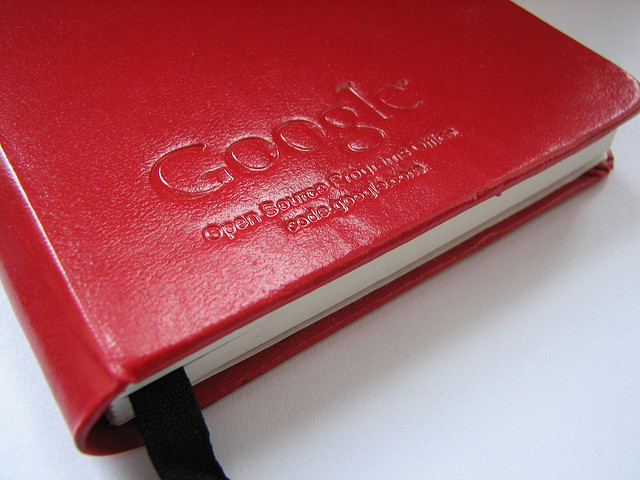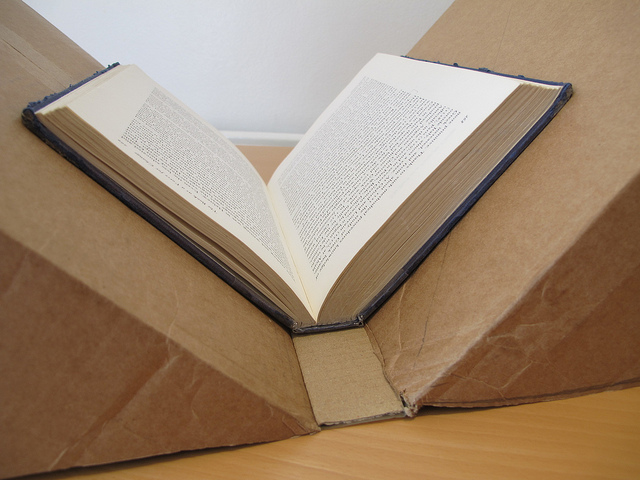On March 22, 2011 the United States District Court of New York announced (pdf) that it did not approve the Google Books Settlement. With its long-awaited decision the Court has sent the controversial settlement between American copyright owners and Google regarding the mass digitization of some twenty million library books, back to the drawing-board.
The Settlement has its origins in a class action copyright infringement suit brought by the American Authors Guild and the American Publishers Association (APA) against Google in 2005. A class action, it should be noted, concerns not just the parties of the case but an entire class of plaintiffs — in this case: all authors and publishers of the millions of books digitized by Google. As the copyright owners alleged, by digitizing the entire book collections of some of the largest university libraries in the world, and making ‘snippets’ of digitized text available through the Google search engine, Google infringed the copyrights of millions of authors and thousands of publishers. According to Google however all this amounted to fair use.
Surprising settlement caused storm of criticism
In the course of 2008 and 2009 parties came to an agreement, the so-called Google Books Settlement (‘GBS’) . To the surprise of many, the settlement far exceeded the scope of the court case, and permitted Google not only to digitize books and display ‘snippets’, but also to commercialize millions of out-of-print works, by selling downloads, e‑books and institutional subscriptions. Thus from the Google Books class action case arose what can be easily called the largest book licensing deal in the world, binding not only Google and its direct adversaries (the authors and publishers represented by the Guild and the APA), but innumerable foreign authors and publishers as well.
Not surprisingly, the GBS caused a storm of criticism, first and foremost by foreign publishers who complained that they had been left out of the deal and that their copyrights were severely comprised. At the Frankfurt Book Fair of 2009, German Chancellor Angela Merkel publicly warned against the consequences of the Settlement for European publishers. Over four hundred official objections were eventually submitted to Judge Chin of the New York District Court, who was called to approve the settlement. Apart from the foreign right holders’ protestations, the concerns expressed in the objections reflected a variety of other interests and fears. According to many, including Microsoft, Amazon and even the American Department of Justice, the GBS would result in a Google monopoly on the online sale of digitized out-of-print books. Scientific authors protested that the GBS would allow Google to commercialize scientific works that many authors preferred to make available for free under open-content licenses. Some objectors also pointed to the privacy risks of a company like Google controlling online access to the world’s literature.
Future scenarios for Google Books
On the other hand, the GBS did receive public support from the universities that had entered into library digitization agreements with Google, such as Stanford and Michigan, and from information specialists and scientists who were excited by the prospect that the world’s literature would soon become available online. Some authors and author’s rights societies also supported the Settlement, for it included a promise by Google to pay substantial royalties to the authors of digitized books.
In the end, more than a year after conducting a public hearing, the District Court decided against the Settlement. Quoting many of the concerns expressed by the objectors, the Court determined that the Settlement is not ‘fair, reasonable and adequate’, as American law requires, and refused to approve the GBS in its present form.
Does the decision mark the end of Google Books, the largest book digitization project ever undertaken — often described as the Bibliotheca Alexandrina of our time? Several future scenarios are possible.
One option is appeal. Google and its counterparts might take a second chance at getting the GBS approved, by appealing the judgment. However, decisions like these are rarely overturned, particularly if they are as well-reasoned as Judge Chin’s decision seems to be.
Another possibility is that Google and the right holders abandon the settlement altogether and resume the court case from which the GBS sprang. Ironically, this would pit Google once again against its former foes that became its best friends in the course of the Settlement: the Authors Guild and the APA. Who might eventually prevail in this suit is a matter of speculation. But even if Google would succeed in having its ‘fair use’ defense accepted by the court, this would never allow Google to make its digital books collection available online, except by way of ‘snippet view’.
A more likely scenario would be revision of the Settlement. A main concern for many objectors to the GBS was its ‘opt-out’ rule. Authors and right holders of out-of-print works who had not expressly opted out of the Settlement would be bound by it. As a consequence large numbers of unknown right holders, such as the heirs of long-dead authors of out-of-print works, would be automatically bound by the GBS, giving Google a monopoly in the market for digitized ‘orphan works’. By amending the Settlement into an opt-in agreement, the risks of a Google monopoly might be greatly reduced, while permitting foreign authors and publishers to become involved in, or withdraw from, the agreement.
For Google, however, the prospect of an opt-in agreement is not very attractive. Seeking express permission from millions of hard-to-find right holders will inevitably entail extraordinary transactions costs. Alternatively, Google would have to make large parts of its book database unavailable to the general public.
A fourth scenario would be legislative intervention. According to legal commentators, what was essentially wrong with the GBS is that it provided for a legal solution of the orphan works issue — the problem of dealing with myriads of unknown right holders in an efficient manner — to the benefit of only a single party: Google. Instead, this problem should be solved by way of legislation, allowing other mass digitization projects — whether by Google’s competitors or by non-profit institutions — to be realized on equal terms.
European and Nordic proposals for solving copyright dilemma
If the Google Books saga has taught us anything, it is that the law of copyright in many countries needs to be adapted in order to permit mass digitization of the world’s cultural heritage without denying authors and right holders fair remuneration. In the European Union, where digitization projects such as Europeana have struggled with copyright problems from their inception, the need for a legislative solution of the orphan works problem is now generally recognized. On May 24, 2011 the European Commission published a Proposal for a Directive (pdf) of the European Parliament and the Council ‘on certain permitted uses of orphan works’. The proposed directive would oblige the Member States of the European Union to allow cultural heritage institutions and public broadcasters to mass-digitize and make available online any ‘orphaned’ books, journals, newspapers, films and television programs in their libraries and archives. The proposal will undoubtedly lead to extensive discussions within the European Parliament and the Council, and is not expected to be adopted anytime soon.
In the mean time, cultural heritage institutions are placing their hopes on yet another solution to the orphan works problem: the extended collective license (ECL). An ECL is basically an agreement between a collective rights management society that represents large numbers of right holders on the one hand and an institutional copyright user (such as a broadcaster or a library) on the other. What makes an ECL different from ordinary collective licenses, is that it is extended by force of law to authors or right holders that are not represented by the collecting society. In this way, an ECL automatically allows the use of ‘orphan works’.
Readers of Vox Publica will be proud to learn that the ECL (in Norwegian: avtalelisens) is a Nordic legal invention that has been applied in Scandinavian countries for years to collective licensing of broadcast music and educational photocopying. In recent times ECLs have also facilitated various mass digitization enterprises in the Nordic countries, including the Bokhylla project that makes Norwegian literature available to the public in digital form. The Nordic solution to the copyright problems of mass digitization is attracting increasing interest from scholars and policy makers around the world. In the Netherlands, a recent study (pdf) by the Institute for Information Law advises the Dutch Government to follow the Nordic example. And even in the United States, where the failure of the Google Books Settlement has inspired a search for legislative alternatives (pdf), the Nordic model is becoming something of a hit.
Perhaps, like the Vikings of yesteryear, Nordic copyright law will one day set foot on American soil.
About this article
This article summarizes and updates a presentation held by the author at the symposium ‘The Google Books Revolution’ that was organized by the Institutt for informasjons- og medievitenskap (Department of Information Science and Media Studies) of the University of Bergen on March 21, 2011.


